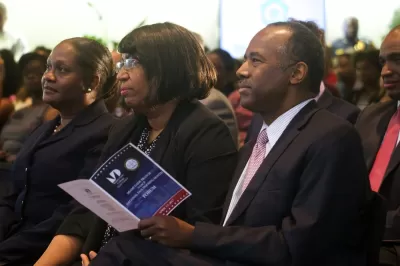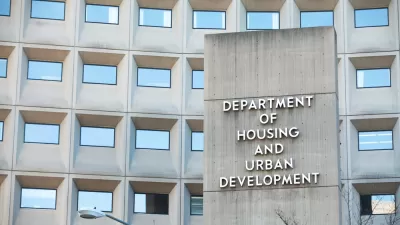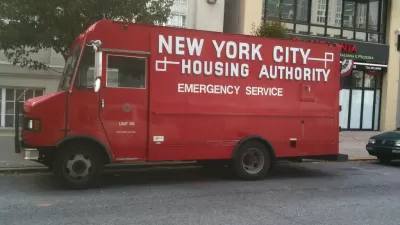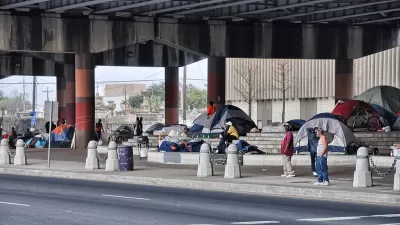Secretary Ben Carson's vision for the Department of Housing and Urban Development focuses on a new workforce development program called EnVision Centers.

Robert Abare interviews Urban Institute fellow Susan J. Popkin on the subject of EnVision Centers, the centerpiece of Secretary Ben Carson's agenda at the Department of Housing and Urban Development (HUD) as he tries to move the mission of HUD away from public housing and toward self-reliance.
Abare explains the EnVision Centers concept as follows: "Located on or near public housing developments, the centers are to be hubs where residents can access services intended to boost self-sufficiency among assisted people through four pillars: character and leadership, educational advancement, economic empowerment, and health and wellness."
As has been noted in previous coverage of Secretary Carson's frustrations in his role at HUD, EnVision Centers have not been devoted much priority. The Trump Administration's most recent budget request, while likely to be mostly ignored by Congress like most presidential budget requests, only includes $2 million for the EnVision Centers. Still, give the importance of the concept to Secretary Carson's agenda, Abare questions Popkin about the precedents, potential, and shortcomings of the idea.
Popkin makes it clear at the outset of the interview that EnVision Centers are based on familiar ideas, and that previous workforce programs have produced modest effects. When asked what is standing in the way of self-sufficiency for the residents of public housing in locations around the United States, Popkin answered thusly:
HUD should be wary of implying that people in public housing don’t want to work—they do. When I’ve visited public housing properties and asked residents what they need, they say jobs.
But low-income people also say that they need various supports to be able to work. They need child care, a wage that can support a decent quality of life, a system that doesn’t put a 100 percent tax on benefits like TANF [Temporary Assistance for Needy Families], SNAP [the Supplemental Nutrition Assistance Program], and housing assistance when they start earning more, and reliable and affordable transportation options.
FULL STORY: Ben Carson’s plan for “EnVision Centers” looks familiar and needs realistic expectations

Alabama: Trump Terminates Settlements for Black Communities Harmed By Raw Sewage
Trump deemed the landmark civil rights agreement “illegal DEI and environmental justice policy.”

Planetizen Federal Action Tracker
A weekly monitor of how Trump’s orders and actions are impacting planners and planning in America.

The 120 Year Old Tiny Home Villages That Sheltered San Francisco’s Earthquake Refugees
More than a century ago, San Francisco mobilized to house thousands of residents displaced by the 1906 earthquake. Could their strategy offer a model for the present?

In Both Crashes and Crime, Public Transportation is Far Safer than Driving
Contrary to popular assumptions, public transportation has far lower crash and crime rates than automobile travel. For safer communities, improve and encourage transit travel.

Report: Zoning Reforms Should Complement Nashville’s Ambitious Transit Plan
Without reform, restrictive zoning codes will limit the impact of the city’s planned transit expansion and could exclude some of the residents who depend on transit the most.

Judge Orders Release of Frozen IRA, IIJA Funding
The decision is a victory for environmental groups who charged that freezing funds for critical infrastructure and disaster response programs caused “real and irreparable harm” to communities.
Urban Design for Planners 1: Software Tools
This six-course series explores essential urban design concepts using open source software and equips planners with the tools they need to participate fully in the urban design process.
Planning for Universal Design
Learn the tools for implementing Universal Design in planning regulations.
Clanton & Associates, Inc.
Jessamine County Fiscal Court
Institute for Housing and Urban Development Studies (IHS)
City of Grandview
Harvard GSD Executive Education
Toledo-Lucas County Plan Commissions
Salt Lake City
NYU Wagner Graduate School of Public Service





























